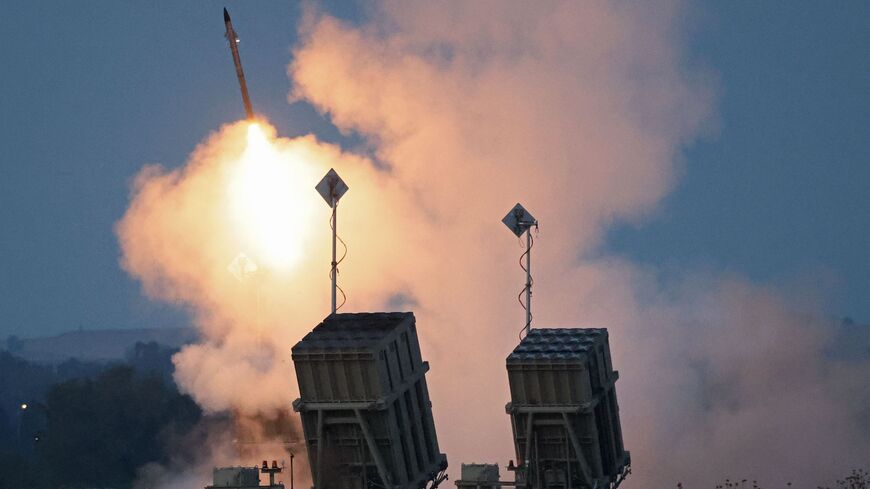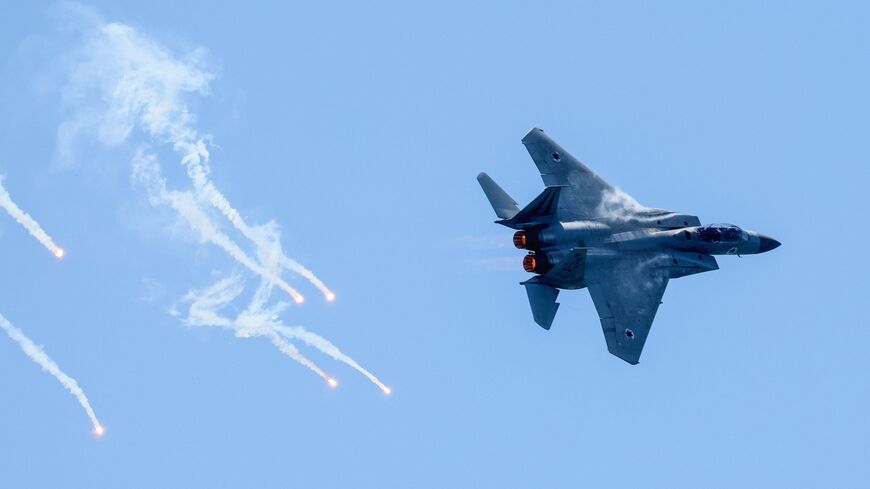Israel weighs response to Iranian attack as US urges restraint
Israel's war cabinet will now decide whether to acquiesce to the demand by President Joe Biden to refrain from striking back at Iran.

Israel's war cabinet is now convening to decide on the country's response to the drone and missile attack by Iran Saturday night. The two options on the table are either to attack Iran directly, or to hold off as requested by President Joe Biden and other world leaders.
If Israel decides to retaliate, it could opt either for a strike on Iranian nuclear facilities or other forms of attacks such as cyberattacks.
Already before the Iranian attack, Prime Minister Benjamin Netanyahu had warned that Israel would react to any strike against it.
Israeli war cabinet member Minister Benny Gantz said before the meeting that "the event is not over — the strategic alliance and the regional cooperation system that we have built need to be strengthened. We will build a regional coalition against the threat of Iran and exact a price from them in the way and at the time we see fit. We must remember that we have not yet completed our tasks — first and foremost the return of the kidnapped and the removal of the threat from the residents of the north and south."
The larger security cabinet voted Saturday night to authorize the war cabinet to make the decision on how to respond. Ynet reported that far right ministers Itamar Ben-Gvir and Bezalel Smotrich voted against it, calling instead for the decision to retaliate against Iran be adopted by the larger security cabinet. Ben-Gvir, who is a member of the security cabinet but not of the war cabinet, said on Sunday that if Israel wants to reinstate its deterrence vis-a-vis Iran, "We must go crazy."
Netanyahu, Defense Minister Yoav Gallant and Gantz will decide whether to retaliate and, if so, to what extent. Heads of the security agencies are expected to join the war cabinet meeting.
Israeli government spokesperson Avi Hyman said Sunday afternoon, as the war cabinet convened, that Israel is studying all the scenarios. He also addressed the issue of the Iranian nuclear program, hinting that an Israeli retaliation against an Iranian nuclear installation could be on the table. Hyman did not say whether a decision was indeed adopted to attack Iran.
The Israel Defense Forces (IDF) said Sunday that Israel's education system would remain closed Monday.
Senior Israeli officials told The New York Times in the early hours of Sunday that Israel would hold off on attacking Iran immediately at the behest of the White House. Biden reportedly said that Israel should consider it a victory that the drone and missile attack by Tehran caused very minimal damage. According to the Israeli military, the IDF managed to intercept 99% of the drones and missiles. Minimal damage was caused by a missile to the Nevatim air force base in the south of Israel, the IDF said. A 7-year-old girl was severely injured by shrapnel in the southern town of Arad.
Meanwhile, while touring the site of one of the Arrow 3 defense system batteries after the attack on Sunday along with US Ambassador to Israel Jack Lew, Gallant said, "We have an opportunity here to establish a strategic alliance against this serious threat from Iran, which threatens to put nuclear explosives on the heads of these missiles. This thing could be a very serious threat. The US, Israel and its allies stand shoulder to shoulder to defend against this threat."








